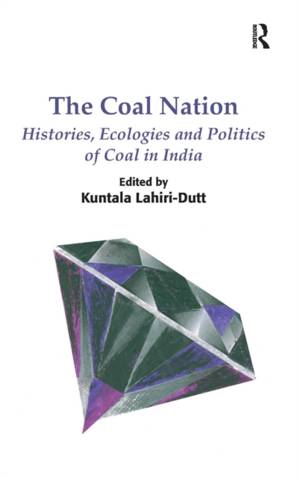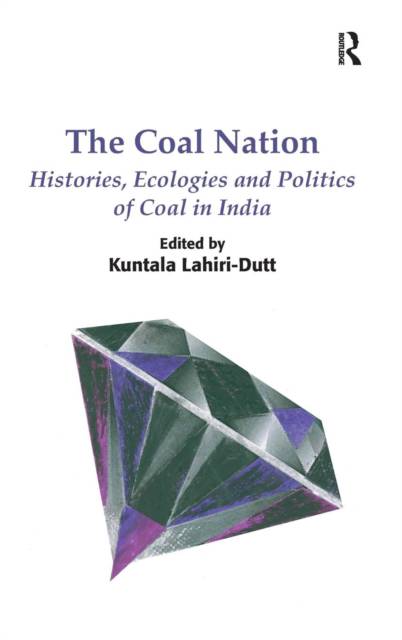
- Retrait gratuit dans votre magasin Club
- 7.000.000 titres dans notre catalogue
- Payer en toute sécurité
- Toujours un magasin près de chez vous
- Retrait gratuit dans votre magasin Club
- 7.000.0000 titres dans notre catalogue
- Payer en toute sécurité
- Toujours un magasin près de chez vous
The Coal Nation
Histories, Ecologies and Politics of Coal in India. Edited by Kuntala Lahiri-Dutt
Kuntala Lahiri-Dutt
Livre relié | Anglais
202,95 €
+ 405 points
Format
Description
Social science research is emerging on a range of issues around large and small-scale mining, connecting them to broader social, cultural, political, historical and economic factors rather than purely measuring the environmental impacts of mining. Within this broader context of global scholarly attention on extractive industries, this book explores two specific contexts: the cultural politics of coal and coal mining, within the context of one particular country, India, which is the third largest coal producer in the world. Both contexts are special; with its separate Ministry, coal occupies pride of place in contemporary India, shaping the energy future and influencing the economic and political milieu of the country. The supremacy attributed to coal mining in contemporary India represents how 'coal nationalism' has replaced 'coal colonialism' in the country, turning this commodity into an icon, a national symbol. In recent years the extraction of coal in forest-covered resource peripheries has dispossessed and pauperised many tribal and rural communities who have used these resource-rich lands for their livelihoods for generations. The combustion of coal to produce electricity constitutes the compelling need, and the factor that prevents the Indian state from fully engaging with the impending realities of a climate-changed future. All these reasons make the timing of this book of crucial importance. In particular, The Coal Nation explores the complex history of coal in India; from its colonial legacies to contemporary cultural and social impacts of mining; land ownership and moral resource rights; protective legislation for coal as well as for the indigenous and local communities; the question of legality, illegitimacy and illicit mining and of social justice. Presenting cutting-edge multidisciplinary social science research on coal and mining in India, The Coal Nation initiates a productive dialogue amongst academics and between them and activists.
Spécifications
Parties prenantes
- Auteur(s) :
- Editeur:
Contenu
- Nombre de pages :
- 348
- Langue:
- Anglais
Caractéristiques
- EAN:
- 9781472424709
- Date de parution :
- 11-04-14
- Format:
- Livre relié
- Format numérique:
- Genaaid
- Dimensions :
- 156 mm x 234 mm
- Poids :
- 666 g

Les avis
Nous publions uniquement les avis qui respectent les conditions requises. Consultez nos conditions pour les avis.






